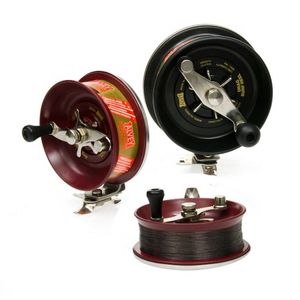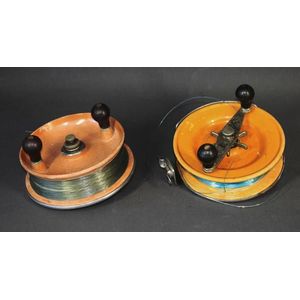War and Peace Pate Sur Pate Glass Vases
Pair Victorian Pate sur pate glass vases flattened cylindrical bodies with cameo panels of war and Peace (one a/f)
You must be a subscriber, and be logged in to view price and dealer details.
Subscribe Now to view actual auction price for this item
When you subscribe, you have the option of setting the currency in which to display prices to $Au, $US, $NZ or Stg.
This item has been sold, and the description, image and price are for reference purposes only.
- A/f, as Inspected - The letters "A/F" or "as inspected" as part of a description is the cataloguer's shorthand for "all faults" or "as found", meaning the item has some type of damage or deficiency, it is of uncertain date or provenance, and/or that the seller takes no responsibility for the completeness of the item or the accuracy of the description.
- Victorian Period - The Victorian period of furniture and decorative arts design covers the reign of Queen Victoria from 1837 to 1901. There was not one dominant style of furniture in the Victorian period. Designers used and modified many historical styles such as Gothic, Tudor, Elizabethan, English Rococo, Neoclassical and others, although use of some styles, such as English Rococo and Gothic tended to dominate the furniture manufacture of the period.
The Victorian period was preceded by the Regency and William IV periods, and followed by the Edwardian period, named for Edward VII (1841 ? 1910) who was King of the United Kingdom and the British Dominions and Emperor of India for the brief period from 1901 until his death in 1910. - Pâte-Sur-Pâte - Pâte-sur-pâte is a decorative technique that is commonly used in ceramics and glassmaking. The term "pâte-sur-pâte" is French and it translates to "paste on paste." This technique involves the application of layers of clay or glass paste to create a three-dimensional design.
In ceramics, the technique involves applying successive layers of a clay slip onto a piece of pottery. Each layer is allowed to dry before the next one is applied. The layers are then carved or incised to create a design in relief. This technique is often used to create delicate and intricate designs, such as figures or floral motifs.
In glassmaking, the technique involves applying layers of molten glass onto a blown glass form. The layers are then carved or etched to create a design in relief. This technique is often used to create intricate designs, such as floral motifs or animals.
Both techniques require a high level of skill and precision, as the layers must be applied and carved with great care to achieve the desired effect. The end result is a beautiful and unique piece of art that showcases the artist's talent and mastery of their craft.
This item has been included into following indexes:
Visually similar items

Three Alvey side cast fishingreels. Model 650-C5 and two model 500-C5.
Sold by
in
for
You can display prices in $Au, $US, $NZ or Stg.

A Chinese glass overlay snuff bottle, Qing Dynasty (1644-1912), Well decorated with two red Chilong dragons over a milky ground, with a jadeite stopper, 6.5 cm high
Sold by
in
for
You can display prices in $Au, $US, $NZ or Stg.

Two various Charles Alvey fishingreels. Snapper reel; & 700 Surf Champion.
Sold by
in
for
You can display prices in $Au, $US, $NZ or Stg.

Sold by
in
for
You can display prices in $Au, $US, $NZ or Stg.
